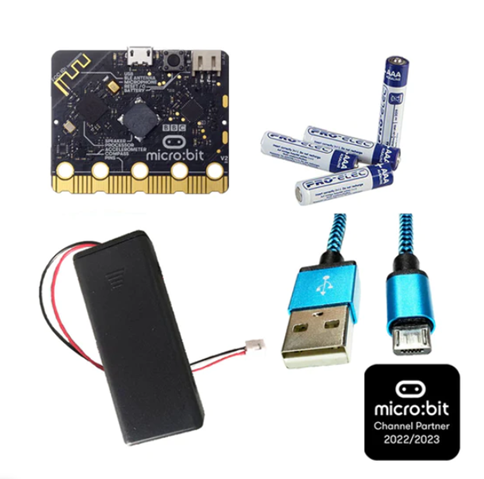
The fast-paced evolution of today’s technology-fueled world necessitates preparing students for life in the digital age. Hence, the BBC Micro Bit comes into play—a miniature programmable device that has transformed the educational arena. Providing functionality for studying coding, electronics, and computational thought, the device is user-friendly for learners of all ages. As a result, it has grown to be an invaluable resource for schools and home-based learning projects around the globe, empowering students to think critically, enjoy problem-solving, and innovate. This post highlights the most feasible possibilities for utilising the BBC MicroBit in the educational process to boost the fun and learning of STEM subjects.
Understanding the BBC Micro:Bit
Designed as part of the wider BBC Make It Digital campaign implementation, the Micro:Bit is a small-sized computer that serves as an introduction to the development and programming worlds for students. The core functionalities of the device include LEDs, buttons, sensors, and Bluetooth and USB connectivity, making them more than suitable for numerous experiments and programming projects. This feature enables learning and schools to make gadgets readily accessible for learners of all ages and income levels, promoting technology and innovation. The recent release of the BBC Micro Bit V2 adds features to the existing model, such as a built-in speaker and microphone, improving its usability for new creative options.
Classroom Activities with BBC Micro Bit
Essentially, the BBC Micro Bit is a multifaceted device suitable for a wide range of classroom activities that can be developed by educators to keep their students involved in the learning process while enjoying new knowledge.
Coding Challenges
The BBC Micro Bit focuses on its programming interface, helping students write code to observe their creations brought to life in real-time. Block-based programming languages such as MakeCode and text-based coding with MicroPython help students grasp key coding concepts, including sequencing, loops, and conditionals, in an interactive manner. Educators may develop coding challenges and exercises to scaffold learning experiences for students with varied levels of knowledge and abilities with Micro Bit, enabling them to master computational thinking and problem-solving.
STEM Projects
Including setup in STEM projects, students can utilise their knowledge of science, technology, engineering, and mathematics to solve common problems. Weather stations, robotics systems, and other projects can be designed to attract data through MicroBit’s capabilities and connectivity alternatives. Students develop critical thinking skills by participating in hands-on endeavours that pique their interest while also connecting the dots between facts and the broader application of STEM in their everyday lives.
Creative Expression
In addition to being used in STEM education, the Micro:Bit may be used as a means of creative expression. Students may use the appliance’s LED display to create animations, generate digital art, or create interactive games. Through creative experimentation and learning about code while having the freedom to adjust their design, students improve their creative capabilities and communication skills, teaching them how to express themselves using technology.
Internet of Things (IoT) Exploration
The Bluetooth-enabled nature of the Micro Bit enables students to explore the possibilities of the Internet of Things. Through IoT projects, students can connect their devices to the world around them, from the design of smart home systems to the development of health trackers to the creation of remote-controlled gadgets. Students learn how interconnected technology is, creating better awareness of its impact on the surrounding society. The ethical and societal implications of the IoT are also explained. Other skills developed during IoT projects include collaboration, data analysis, and system thinking.
Enhancing Micro Bit Learning: Kits & Accessories
To maximise the educational capability of the Micro:Bit, educators can use various microbit accessories and kits that accompany the device. Typically, the microbit kits comprise a variety of sensors, motors, and expansion boards that customise students’ opportunities to learn various subjects and topics. In addition, add-ons such as battery packs, inclosures, and breakout boards contribute to the enhanced mobility and flexibility of the BBC Micro Bit, enabling students to engage in hands-on learning even outdoors. Therefore, it can be concluded that by ensuring access to a broad array of tools and materials, educators assist in fostering students’ STEM learning skills by helping them identify the spheres they are interested in.
Conclusion
The BBC Micro Bit is a wonderful addition to any educator looking to instill a sense of curiosity, creativity, and invention. A BBC Micro Bit in the classroom forms a community of enquiry that encourages experimentation and taps into each student’s imagination. This allows students to adopt the role of active producers in today’s digital environment. Through the use of coding challenges, STEM projects, creative efforts, and IoT experimentation, the possibilities granted to the students by the Micro:Bit are broad. When integrated properly into the training setting, this device might help students build the abilities and knowledge they require to succeed in the 21st-century workforce. In a rapidly evolving technological environment, the Micro:Bit is a vital consideration that can assist teachers and students in developing the future of education.






